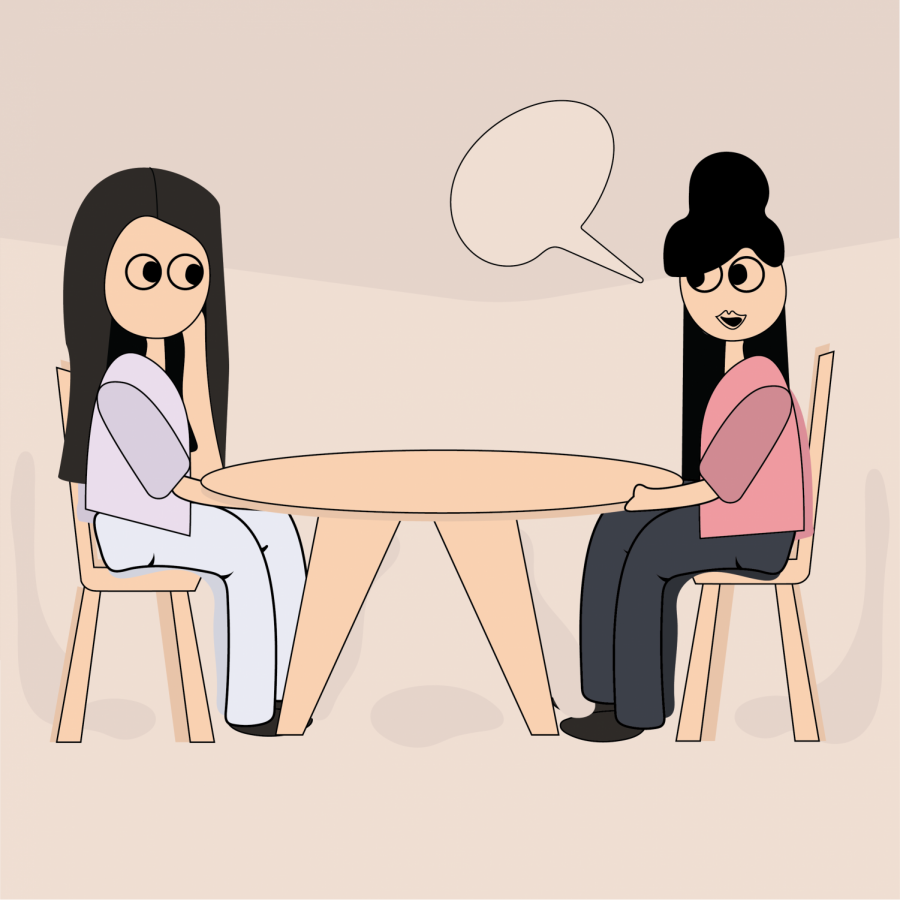Be aware of advice you give to others
Sep 8, 2018
It’s the beginning of the school year, and a lot of people are starting up relationships again after summer break. Whether it’s getting back into that comfortable rhythm with your friends, finding a balance with your new roommate, or relearning how to be in a short-distance relationship after doing long distance for a while, that transition back can be rough. It’s always nice to talk to someone, whether just for general ranting purposes, or to ask specific advice, and I like to think I’m that person for a lot of my friends.
I’m confident and opinionated, and I have a pretty good track record in terms of being right about things.
Last weekend, my friend came over, seemingly for innocuous reasons. We talked for a while, and after some coaxing, I figured out that he was having some problems with his roommate, who was apparently being too clingy. He wasn’t exactly asking for advice, but I offered some anyway, and I hope he took it.
I like speaking up, I like making my voice heard, and given my well-earned levels of confidence, when I’m asked for advice, or just told a story which I then interpret as a desperate plea for help, I’m eager to offer a solution. I’m right more often than not, which just serves to boost my ego.
But given how loud I am, a surprising number of my friends are just the opposite. So many of them are quiet people, who don’t speak up, who try to please other people over themselves. I’m a little fast-paced, and I’m definitely impatient. I finish sentences, I make choices, and I make sure everything’s going according to plan — according to my plan, at least.
Get The Daily Illini in your inbox!
It’s hard for me to listen, although I like to pretend otherwise. I’m constantly formulating responses and building arguments. I like delivering sweeping speeches that solve problems, to swoop in and save the day with my superior analytical skills, but my need to present neat, tied-up solutions to every piece of interpersonal drama isn’t always helpful.
Sometimes drama is straightforward, and there’s a straightforward solution that’s easily determined by someone on the outside.
Some situations are more nuanced. Steamrolling isn’t always the way to go. It’s important to be aware of the way different people interact with the world, to extract what people are actually saying, what they’re really looking for, from a mess of verbal vomit. It’s important to understand the impact of your behavior, your words on the people around you.
I may not always be the best listener, or even the most observant person, but in situations that demand it, I make the effort to be present and focused, encouraging and patient. I want to be a good friend, and that isn’t something that’s always easy, especially with a forceful, abrasive personality. But I know what I want, and although being a good friend has a myriad of meanings, it’s at least an ideal to work toward.
Everyone has a different point of view, a different way they interact with the world. It’s difficult to communicate well across those barriers of personality, and it’s always an uphill battle, but one worth fighting.
Sandhya is a sophomore in LAS.






